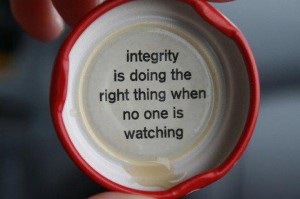 Work is something that defines man. When we meet someone the first thing we often ask “What do you do?”. In our post-modern culture, our work has defined who we are and what we do. And rightly so. Think about how work is tied to status and reputation. We define a person’s stature by his profession. We rationalize an individual’s prized posession by his status and job.
Work is something that defines man. When we meet someone the first thing we often ask “What do you do?”. In our post-modern culture, our work has defined who we are and what we do. And rightly so. Think about how work is tied to status and reputation. We define a person’s stature by his profession. We rationalize an individual’s prized posession by his status and job.
The job has evolved beyond just a means of supporting one’s existence in this world. It has become a measuring stick for one’s success, for one’s ambition. To some, it is all about the income. To others, the status and prestige, and to some a lifelong passion and desire.
But there is something else about the job that people most often don’t talk about. The character that it builds and produces within you. No one talks about this. In most professions, everyone talks about how you should be competent with the job. You should be good at what you do. But hardly anyone talks about character and work ethics.
Its as though at times, these 2 important (and often neglected) virtues become a given and that stressing the importance of competencies and capabilities takes paramount. As a job interviewer myself, when I go through the interviewing guidelines to interview a potential candidate, I do not find any guidelines that guides the interviewer to probe a question on character and work ethics. Most questions are all about assessing a person’s capabilities but rarely do you find a guideline question that asks “tell me a time when you displayed integrity at work?” or ” How would you describe your character and state of mind when you overcome the biggest challenge of your career life?”
And ironically, despite these implicit virtues being often ignored at the workplace, I have often found its precisely these virtues were the key success factors that helped an employee grow the most. Capabilities and competencies are a given. You can only get so good at producing world-class quality slides. Its your soft skills and character that you develop under pressure and difficulties that moulds you into a valuable asset.
And yet, many today still do not stress the importance of these underpinning virtues at our workplaces today.
